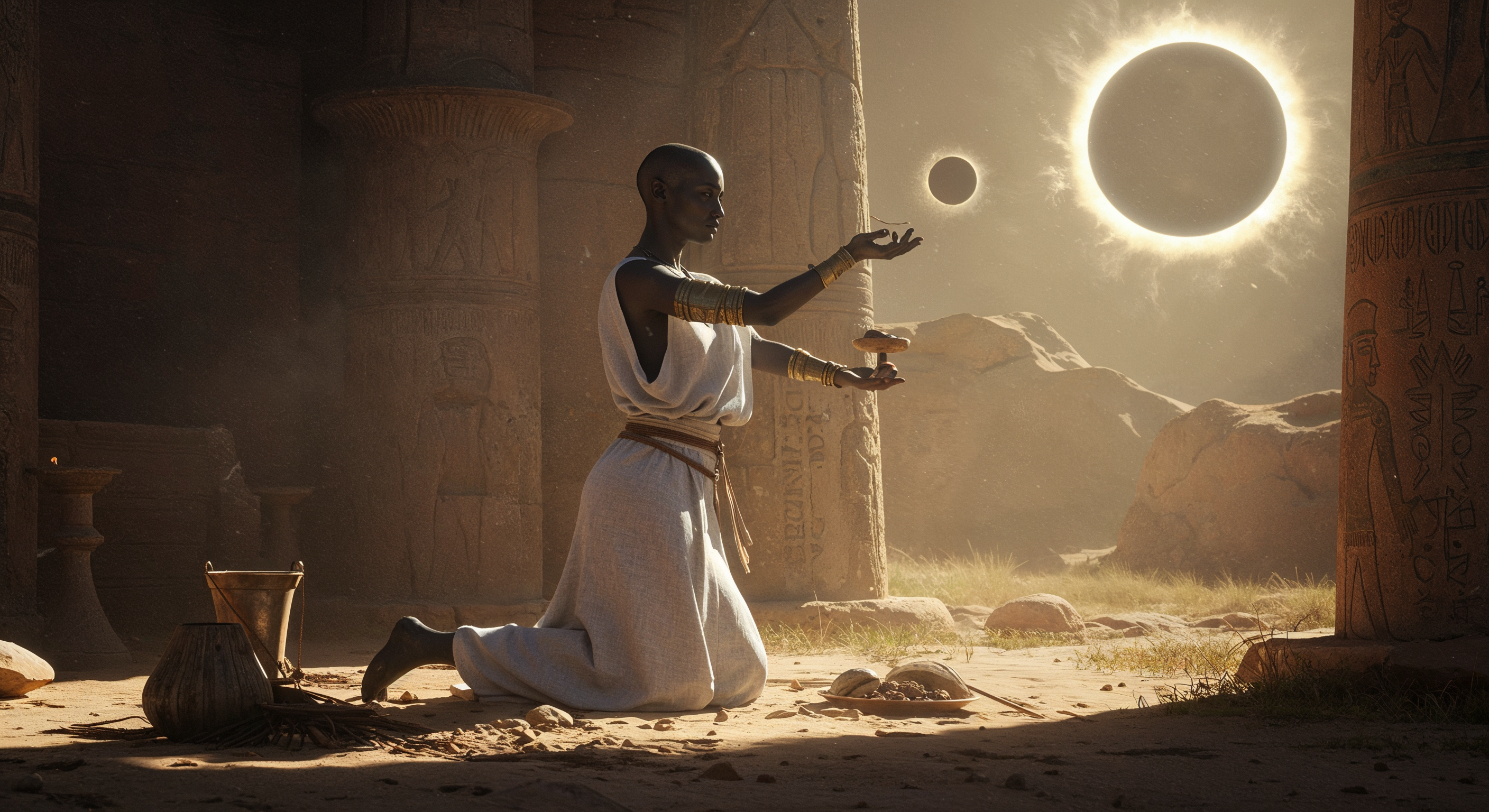Of Light and Shadow in Equal Measure

The Opening
Seran: We are taught that light is the first mercy — Baom’s opening of the void so that being might see itself. What, then, is shadow if not the refusal of that mercy?
Maerun: A refusal, perhaps, but not rebellion. Shadow is light’s consequence. Without the obstacle, no illumination can define itself. To call it evil is to mistake boundary for betrayal. Moab’s breath moves through the places light cannot reach, preserving what would wither under endless glare.
Seran: You speak as though absence is a virtue.
Maerun: I speak as one who tends soil. The seed germinates in darkness; the womb guards life unseen. Light’s kindness is completion, not inception. One must begin in stillness before reaching brilliance.
On the First Divergence
Seran: The texts of the First Making tell that Baom and Moab labored together to shape life. Yet when Shadwe rose, their unity broke. If shadow is necessary, why did the world nearly die beneath its reign?
Maerun: Because necessity, left unbalanced, becomes hunger. Shadwe was not born of evil; it was born unchecked. Shadow’s rightful role is to rest, not to reign. It is the silence between notes, not the song entire. The tragedy of the Great Mourning was not darkness itself, but the forgetting of dawn.
Seran: Then you concede that Baom’s light must guide?
Maerun: As I concede that the body must exhale what it inhales. Neither act alone sustains life.
On the Nature of Sin
Seran: You imply that what we call sin is only imbalance. Yet I have seen the Mopru — creatures who devour the living, who glorify decay. Can equilibrium explain them?
Maerun: The Mopru are not shadow; they are shadow severed from purpose. They mirror Baom’s zeal without compassion. Both extremes burn. Remember: it was zeal for purity that forged the pyres of the First Inquisition, when the Luminous Order sought to cleanse Sholan of Moab’s adherents. Purity without patience is fire without wick.
Seran: Your criticism is fair. The Inquisition is a scar we recite in penance. Yet still, the faithful must name evil or risk inviting it.
Maerun: Name it, yes — but not own it. Evil is the echo of imbalance repeated until it believes itself real. Shadow made proud. Light made blind.
On Tovan Ki and Dual Manifestation
Seran: The adepts of my order study Tovan Ki as the pulse of divine fire — pure illumination shaping matter. Yet your Moabite scholars claim it flows as water, quiet and enduring. Are we describing two forces or one?
Maerun: One, divided by perception. The Current changes nature according to the vessel that holds it. In flame, it teaches transformation, in water, continuity. Baom’s flame and Moab’s river are not rivals — they are consecutive moments in the same breath.
Seran: Then the practitioner’s virtue lies not in domination, but in attunement?
Maerun: Precisely. When a wielder forces Ki to serve will, the current splinters. When they yield to its rhythm, creation unfolds. Both our Orders have produced saints and monsters by forgetting this distinction.
On the Redemption of Shadwe
Seran: A bold question, Maerun. Do you believe practiciners of Shadwe may be redeemed?
Maerun: Redemption is a river that remembers its source. If Shadwe still hungers, then they still recall what fullness felt like. Even the darkest current may find the sea again. Moab teaches that all cycles complete themselves; none are lost forever.
Seran: And yet, his followers commit atrocities still. The Mopru enslave, the Shadowborn corrupt. Are we to wait centuries for a tide that may never turn?
Maerun: Patience is not waiting; it is working without despair. Every balanced act pushes against oblivion. When a healer closes a wound, when a judge shows mercy, the veil thins. Shadwe is weakened not by swords, but by equilibrium. Balance starves him.
Seran: Then perhaps our Orders fight the same war by different means — your stillness, our light.
Maerun: The same war, yes, though I would call it a conversation. Every dawn is an argument light wins gently.
On Faith and Knowledge
Seran: The Luminous archives teach that enlightenment is ascent — the soul rising toward Baom’s realm of pure radiance. What, then, do your people seek?
Maerun: Descent — not into corruption, but into comprehension. We dig into the soil of being until we find the buried spark of the divine. Where your faith builds ladders, ours grows roots. Both reach upward, but through different remembering.
Seran: And so the circle completes itself. Roots and light, both seeking the same sky.
Maerun: Precisely. Moab and Baom are not estranged gods; they are the inhale and exhale of the same cosmos. The tragedy of mortals is believing one breath sufficient.
Closing Concord
When the candle between them at last burned to its wick, both theologians rose. Seran extinguished the flame with a single breath, and for the first time, shadow filled the Lumen Spire’s perfect chamber. The High Theologian did not rekindle it.
Seran: Perhaps the world may rest easier if light learns to trust the dark.
Maerun: And if darkness learns to carry light without envy.
They bowed to one another — not as victors, but as mirrors. The record ends here, though the archivists of Esandoros note that afterward, the Luminous Spire adopted the Moabite practice of “The Quiet Hour” at dusk: one hour each day when all lamps are dimmed, and priests sit in stillness to recall the origin of light.

